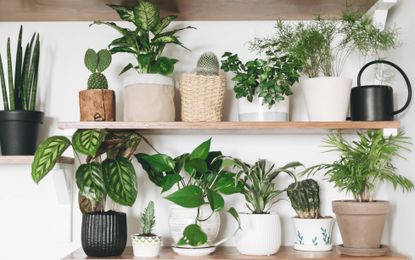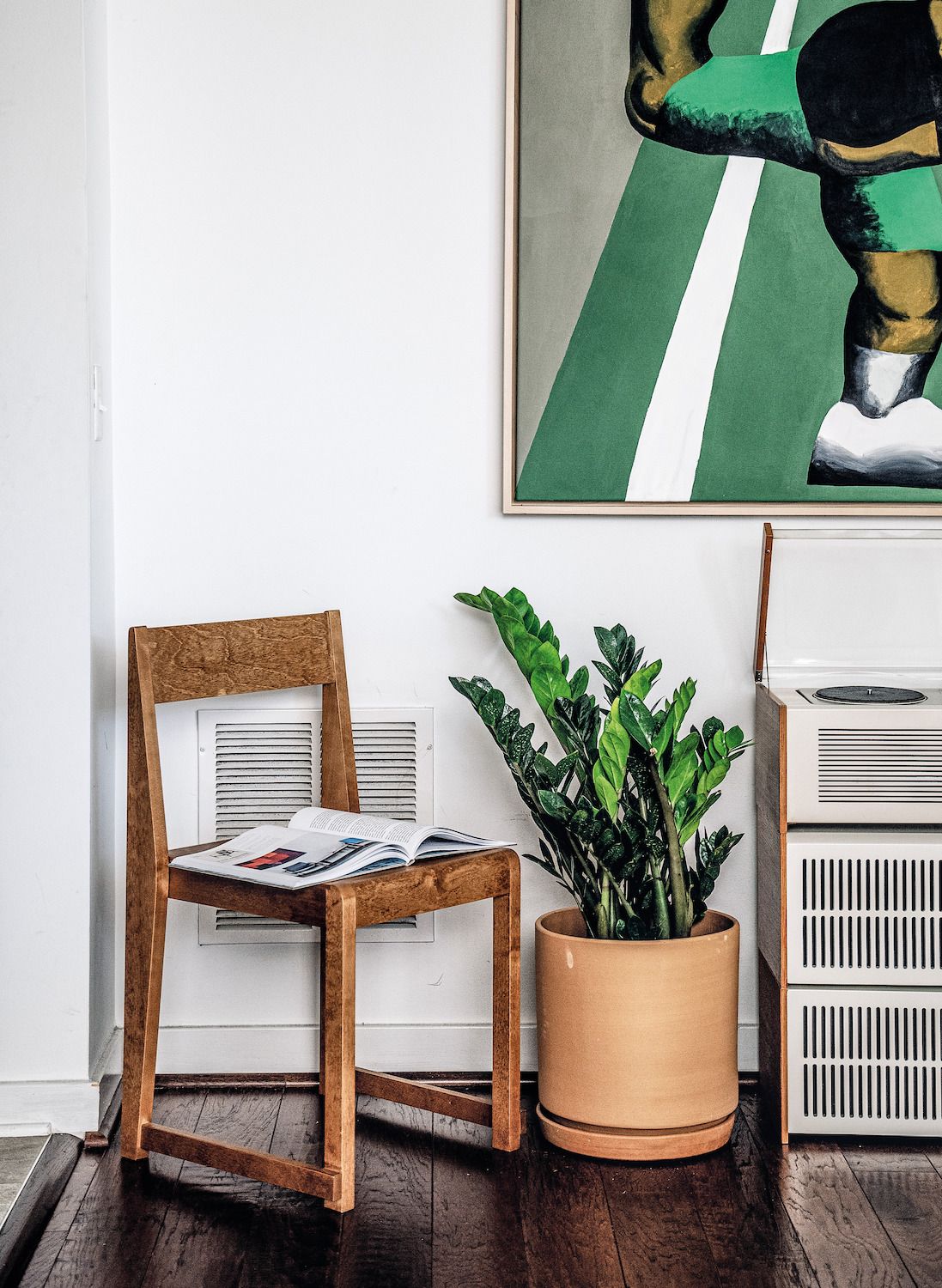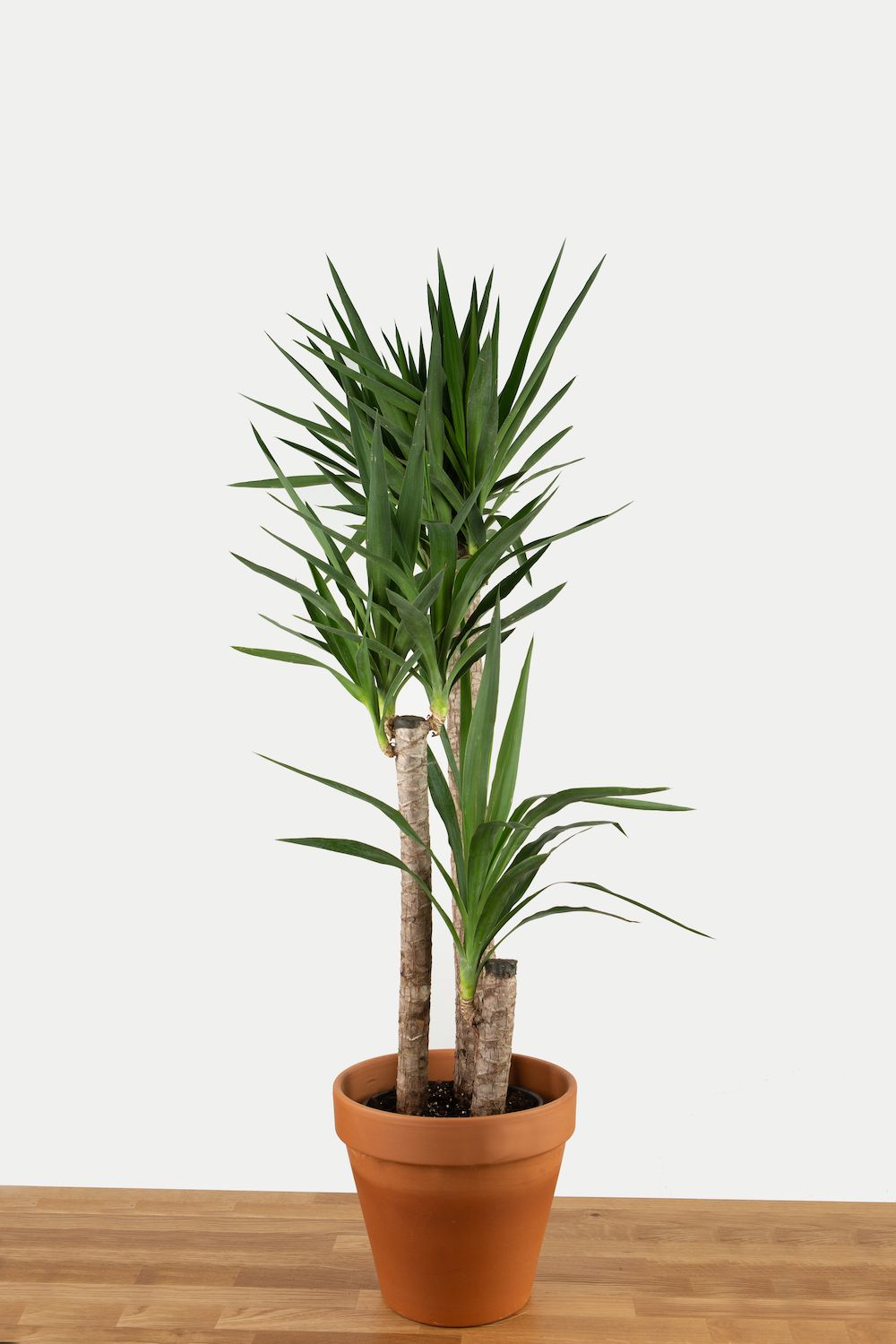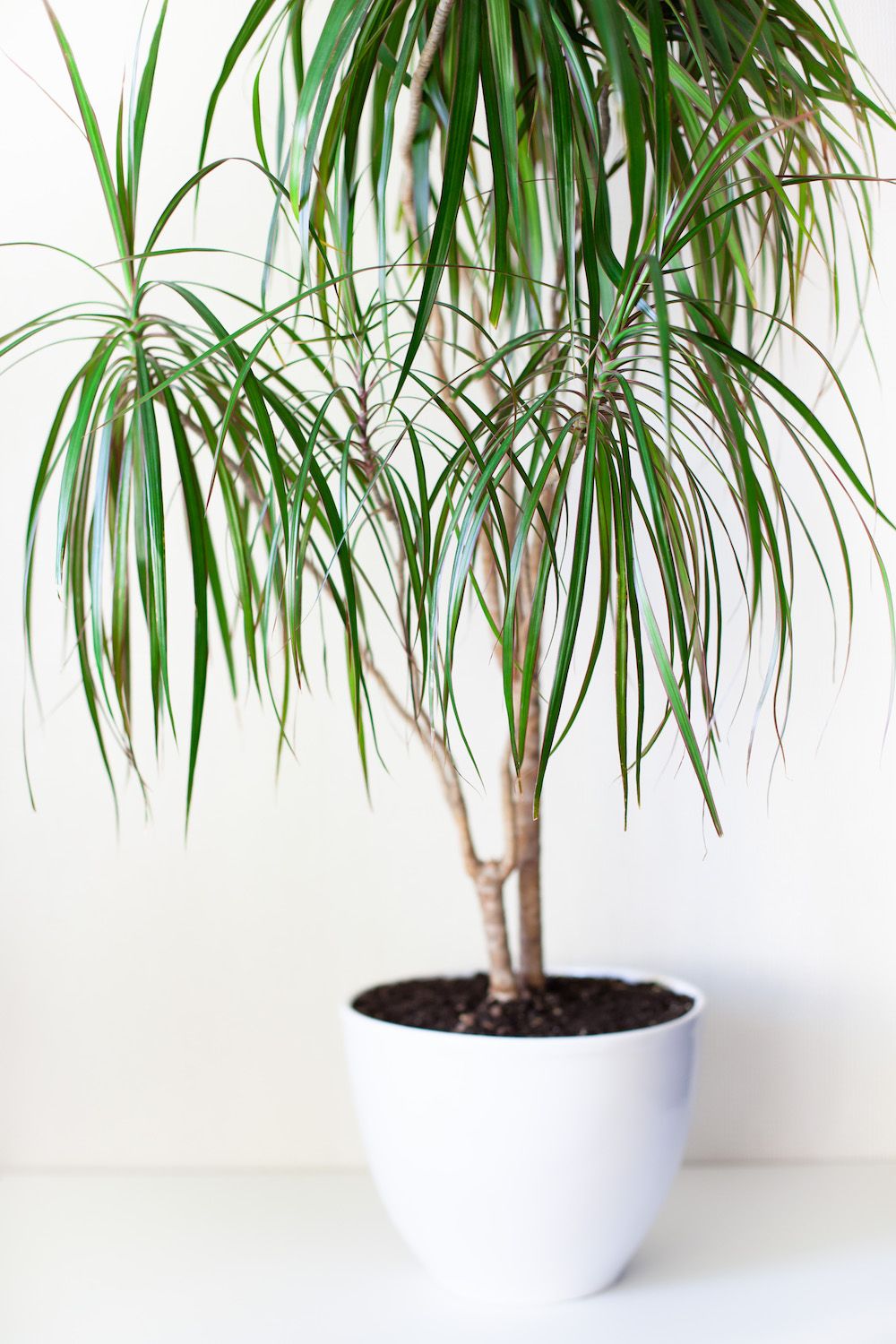'They're so gratifying!' These 5 indoor plants last the longest, so you can love them for years (and struggle to kill them)
These 5 indoor plants last the longest, so they'll be practically be part of your family. And even the least green thumbed will struggle to kill them!

Of course, which indoor plants will last the longest will depend on how they are cared for. Look after them well and most houseplants can last a decade or more.
However, some plants are more adaptable than others. There are those, such as calatheas and caladiums that need conditions to be just right to thrive. Then there are others, like the ZZ plant or Golden pothos that can tolerate inconsistent watering and different levels of light yet stay green, gorgeous – and growing.
Nurturing a plant in your indoor garden for years is gratifying. It also enables you to change your indoor garden around. Plants like Dracaena (dragon tree) or Yucca can start as small pot plants on a shelf. Then within a few years they could be taking up floor space in a corner of a room, as they become elegant indoor trees.
Whether you've honed your green thumb already, or are still working on it, the indoor plants that will last the longest will give you a head start for an enjoyable and enduring indoor garden.
5 indoor plants that will last the longest
'In every houseplant owner's life, the time comes to get your hands dirty,' says Lisa Eldred Steinkopf, the houseplant guru and author of Houseplants. 'Plants grow, increase in size, and eventually need to be moved to a new container.
'Providing it with the best potting medium for its particular needs ensures the root system can function well and give the plant what it requires for optimal growth.
'If up-potting a plant, make sure it is being done at a time when the plant is actively growing. The plant will show you its thanks by pushing out new healthy growth.'
1. Snake plant (Sansevieria)

With the current resurgence in houseplants, the snake plant has risen in popularity. This is due, not only to its striking good looks, but it's easy to care for too- it's one of the best low maintenance plants for indoor gardening. This ease in care ensures a longer life than many other plants that may succumb to a lack of attention or inconsistent watering on its owner's behalf.
Native to west Africa, sanseviera's elegant sword shaped leaves retain water so it is drought tolerant. It's also a great plant to have in the bedroom, as unlike most others the snake plant releases oxygen and absorbs carbon dioxide at night.
'For longevity, the Snake Plant is an excellent choice,' says Nick Sandford, founder of Leaf & Clay. 'It's known for its durability and ability to withstand neglect. Snake Plants are low-maintenance, tolerate a wide range of light conditions, and can grow quite tall. They're perfect for busy individuals or those new to plant care.'

Price: $29.01
Expected plant height: 24 Inches
2. ZZ plant (Zamioculcas zamiifolia)

The ZZ plant features on many an 'indestructables' plant list. Of course, like any living thing, it needs some care. However, the ZZ plant is popular for its ability to withstand neglect. For this reason, it's a great low maintenance plant for beginners or busy people, who don't have the time to tend to an indoor garden on a regular basis. It's also one of the best plants for an indoor zen garden - they're just so peaceful, somehow.
'The ZZ Plant (Zamioculcas zamiifolia) is another long-lasting indoor plant,' says Nick. 'It thrives in low light conditions and can tolerate irregular watering. Its glossy, dark green leaves add a touch of elegance to any space.'

Price: $40.59
Needs: Partial shade
3. Golden Pothos (Epipremnum aureum)

Wondering what plant are best for a lush indoor garden? Wonder no more - it's the pothos. Loved for its variegated leaves, lush vines and easy temperament, Golden Pothos is a favored fixture for newbies and seasoned plant parents alike.
Also known as Devil's ivy, due to its hard to kill and long-lasting reputation, Golden Pothos can be trained to climb a moss pole or left to trail making it a flexible choice in foliage.
'The Pothos (Epipremnum aureum) is a popular choice for lasting indoor greenery,' says Nick. 'It's adaptable to various light conditions and is forgiving when it comes to watering. Pothos vines can grow quite long, making them great for hanging baskets or for trailing down shelves.' And here's everything you need to know about hanging plants, by the way.

Price: $16.99
Was: $19.99
4. Yucca elephantipes

This 80s foliage throwback has made a resounding return. Much like plants that were popular in the 70s (monstera and spider we're looking at you), the Yucca plant is easy to care for will last for years. You may even have a relative who still has one.
Originating in Mexico, central America and southwestern US states, Yucca elephantipes offers rustic desert vibes. With its multiple trunks and spiky leaves, it brings an easy relaxed look to living spaces and will thrive with normal household humidity.
Ensure it has adequate drainage and allow the top soil to dry out between waterings. Look after it long enough and this slow growing pot plant will eventually resemble a small tree. One of the easiest and fastest plants to grow indoors.

Price: $54.99
5. Dracaena marginata (dragon tree)

Easily one of the best indoor trees, and often referred to as a Dragon tree, Dracaena marginata is native to Africa, Asia and Australia. It tends to be long-lasting due to its easy-going nature. Dracaena can tolerate low light levels and in frequent watering. In fact, it's another plant that likes its soil to dry out between waterings.
'Large plants benefit from brighter light to help retain their mature foliage,' says Paris Lalicata, plant expert at The Sill. 'They require less frequent watering too, due to the higher volume of soil. Every 1-2 weeks should be enough. Yellowing leaves indicate your plant has been overwatered.'
Price: $35.84
Was: $38.46
Be The First To Know
The Livingetc newsletter is your shortcut to the now and the next in home design. Subscribe today to receive a stunning free 200-page book of the best homes from around the world.
Jacky Parker is a London-based freelance journalist and content creator, specialising in interiors, travel and food. From buying guides and real home case studies to shopping and news pages, she produces a wide range of features for national magazines and SEO content for websites
A long-time contributor to Livingetc, as a member of the team, she regularly reports on the latest trends, speaking to experts and discovering the latest tips. Jacky has also written for other publications such as Homes and Gardens, Ideal Home, Red, Grand Designs, Sunday Times Style and AD, Country Homes and Interiors and ELLE Decoration.
-
 These 12 Best Table Lamps for Your Desk — Perfect Glows for a Creative Home Office
These 12 Best Table Lamps for Your Desk — Perfect Glows for a Creative Home OfficeThe best table lamps for your desk is have a soft, targeted glow. Elevate your WFH set-up with these stylish picks endorsed by Style Editor Brigid Kennedy
By Brigid Kennedy Published
-
 The Nespresso VertuoPlus is 30% Off for President's Day, and it's Kim Kardashian's Coffee Maker of Choice
The Nespresso VertuoPlus is 30% Off for President's Day, and it's Kim Kardashian's Coffee Maker of ChoiceThis sleek and stylish coffee maker was spotted in Kim's home bar, and you can currently save $60 if you buy yours from Amazon
By Lilith Hudson Published

